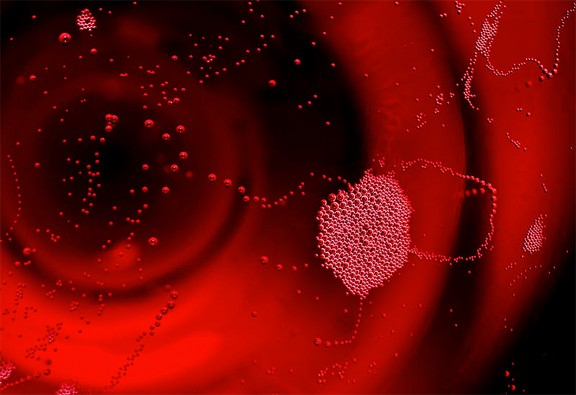
Why does wine taste better in Italy? Or does it?
Earlier this week, New Yorker magazine psychology and science blogger Maria Konnikova published a post devoted to "what we really taste when we taste wine."
The post was inspired by a recent "live-action" experiment by Columbia University neuroscientist Daniel Salzman.
"His premise," explains Konnikova, "is that no event or object is ever experienced in perfect, objective isolation. It is instead subject to our past experiences, our current mood, our expectations, and any number of incidental details—an annoying neighbor, a waiter who keeps banging your chair, a beautiful painting in your line of sight. With something like wine, all sorts of societal and personal complications come into play, as well. We worry, for example, about whether our taste is 'good.'"
Early Christian philosopher Augustine of Hippo (354-430 C.E.) wrote extensively (and some would say definitively) about this very issue when he described the role of memory in human sensation. He arrived at Salzman's same conclusion. But that's neither here nor there.
"Expectations," writes Konnikova, "can influence our experience in two interrelated ways. There is the conscious influence, or those things we are knowingly aware of: I’ve had this wine before and liked or hated it; I’ve been to this vineyard; I love this grape; the color reminds me of a wine I had earlier that was delicious. As our experience grows, so do our expectations. Every time we have a wine, we taste everything we know about it and other related wines. Then there are the unconscious factors: the weather is getting on our nerves, or our dining companion is; we’ve loved or hated this restaurant before; I’m mad at my boss over something he said this morning; the music is too loud, and the room is too cold. These can all affect taste, too, even though they are unrelated to the wine itself."
(Please do read Konnikova's insightful account of participating in the experiment.)

Above: We see through a glass but darkly (image via OurSommLife).
The blog post was widely read last week in the U.S. fine wine community and the link found its way to my inbox via more than one e-list and RSS feed.
As I read it, I couldn't help but think about something that American visitors to Italy often tell me: the wine just tasted so much better when I was in Italy. That observation is almost always followed by inquiry: why is that? and do the Italians simply keep the good wines for themselves?
The answer to the first question, especially in the light of Konnikova's experience, is simple. When you're on vacation in Italy, you're probably (and hopefully) more relaxed; ideally, you are more well rested; you're likely sharing the experience with someone you care about and feel close to; you're surrounded by Italy's natural and human-made beauty; you might even be getting laid.
But there's an even more important element. In Italy (or France or Spain, for that matter), you're probably eating more wholesome foods that have been prepared as part of a more balanced diet. You're also pairing foods and wines that have been paired together — organically and thoughtfully — for generations. And ultimately, you're not having a breakfast burrito in the morning, Mongolian beef for lunch, and "Italian" for dinner: if you're dining well in Europe, you ought to be enjoying meals inspired by local agriculture and local culinary tradition.
Now, don't get me wrong. By no means am I saying that the one or other approach to daily dining is better or worse. Personally, I like it both ways.
But the more "holistic" approach that you find at your favorite agritursimo (farm house restaurant/tavern) in Italy does make the wine taste better because the wine is consumed in a more organic (and perhaps more restful) context and environment.
The answer to the second question (do the Italians keep the good wine for themselves?) is more complicated.
It's not that they keep the good stuff for themselves (although the Italian wine trade, like that of any nation, including our own, is inevitably driven more by profit than by altruism). The fact of the matter is that Italians prefer wines with lower alcohol, lighter body, and higher acidity. In enogastronomic context, those wines simply tend to taste better to most people — especially when they are tasted with no pretense or social pressure.
Aaaaaaaa… social pressure. Wine is, after all, a social experience (unless you drink alone).
"After the impressions and scores on our cards had been tallied and analyzed," writes Konnikova, "it was time to reveal the ratings. I was nervous, since I knew I would have to report back on my accuracy."
If there's one thing I'd like to impart to readers through my blogging (and I am confident that Master Sommelier and Boulder Wine Merchant owner Brett Zimmerman would agree with me 100 percent), it's that we should evaluate and appreciate wine within the personal and idiosyncratic context when/where it is tasted. If poolside under the hot Louisiana sun (as I hope to be next weekend), I'd probably give a light bright, 11 percent alcohol Moschofilero from Greece a 90+ score. If celebrating my birthday in the middle of summer (as I always do and recently did do), I'm going to drink a better-suited-for-autumnal-temperatures Barolo (which I did) because by golly, it's my birthday.
Salzman and Konnikova are telling us the same thing that Augustine revealed some 1,600 years ago. And it's as relevant now as it was then.
As you ponder the wine that you will drink with someone you love this weekend, the important thing to remember is that wine is good if it tastes good to you.
—Jeremy Parzen
follow Jeremy @DoBianchi